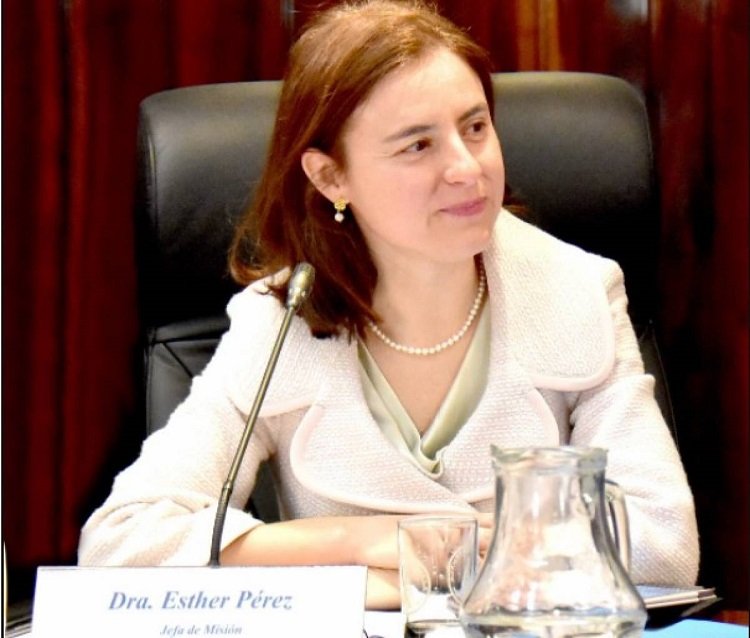ISLAMABAD: Pakistan and the International Monetary Fund (IMF) developed an understanding on the federal budget for 2022-23, which will lead to revival of the extended fund facility (EFF) after the government made a commitment to generate Rs436 billion more taxes and enhance petroleum development levy (PDL). The PDL will be increased gradually up to Rs50 per litre.
The understanding was reached during a virtual meeting between the IMF staff mission and the Pakistani economic team, led by Finance Minister Miftah Ismail.

Admitting progress over the FY23 budget, IMF Resident Representative in Pakistan, Esther Perez Ruiz said, “Discussions between the IMF staff and the authorities on policies to strengthen macroeconomic stability in the coming year continue.”
The IMF mission will finalise monetary targets with the State Bank over the next couple of days and share the draft of a Memorandum of Economic and Financial Policy (MEFP).
The MEFP would also contain certain prior actions that would be necessary for implementation before the IMF board takes up Pakistan’s case for approval and the subsequent disbursement of about $1 billion in July.
“We have now locked the budget in consultation with the IMF,” Finance Minister Ismail told journalists, adding that all budget-related issues had been settled with the Fund.

The IMF is also expected to issue a statement to endorse a substantial progress on the fiscal framework. Senior officials said that to win over the IMF mission, the Pakistani side had agreed to start charging on all POL products a petroleum development levy which will be gradually increased by Rs5 per month to reach a maximum of Rs 50/liter.
The government also agreed to impose 1pc poverty tax on firms earning Rs150 million, 2pc on those earning Rs200m, 3pc on over Rs250m and 4pc on Rs300m above. In the original budget, the government had set a 2pc poverty tax only on those earning Rs300m and above.
The government also agreed to do away with provisions for additional salaries and pensions, for which Rs200 billion had been set aside as block allocation. Instead, a separate allocation of contingencies had been made but that would be strictly utilized for emergencies likes floods and earthquake so that amount remains unspent.
Pakistan also committed to deliver a Rs152 billion primary budget surplus, which means the revenues would finance all expenditures — other than interest payments — and still leave Rs152 billion surplus in the national kitty.
The sources said the IMF team will now finalise targets for net international reserves and net domestic assets, but everything on part of the agreement had been settled. The IMF team would share its draft MEFP with the government on Friday, sources said.
The coalition government has agreed to revise upward the annual tax collection target by almost Rs422 billion for the year 2022-23 by taking additional tax measures with the aim to meet IMF requirements.
Although the coalition government shied away from unpopular tax measures for fear of political backlash in its first budget and pinned its hopes on achieving maximum revenue from higher than expected inflation and economic growth, the low revenue target did not go down well with the IMF, which asked Islamabad to take additional measures to make the revenue collection target more realistic.
The Fund’s preliminary estimates that additional measures will be needed were conveyed to the finance ministry soon after the announcement of the budget.
Official sources told Dawn that a formal agreement has been reached following FBR assent to revise its annual collection target from Rs7004 billion to Rs7426billion for the year 2022-23. This increase has all but cleared way for the resumption of the IMF programme, sources said.
One of the major decisions, according to insiders, was to increase tax rates in higher slabs for those earning higher salaries. As of today, the exemption up to Rs1.2 million will remain intact, sources said.
I am an experienced writer, analyst, and author. My exposure in English journalism spans more than 28 years. In the past, I have been working with daily The Muslim (Lahore Bureau), daily Business Recorder (Lahore/Islamabad Bureaus), Daily Times, Islamabad, daily The Nation (Lahore and Karachi). With daily The Nation, I have served as Resident Editor, Karachi. Since 2009, I have been working as a Freelance Writer/Editor for American organizations.










